Star Interview: Barnsley broadcaster Jenni Murray sees history through the eyes of Britain's great women
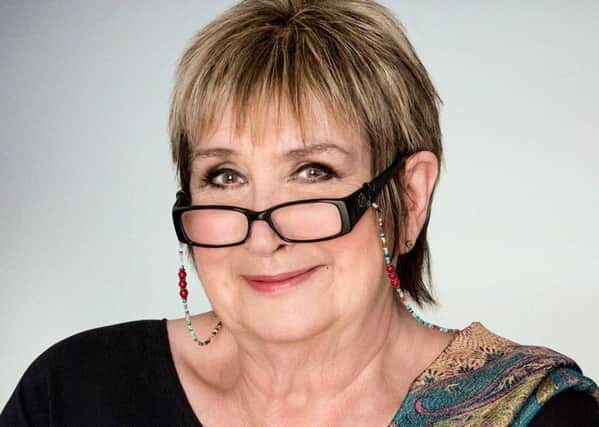

“I always wanted to try and get from her what it was like to have her gender at the front of everything,” says Barnsley-born Jenni, who interviewed Mrs Thatcher - ‘quite the most terrifying woman ever’, she recalls - for the BBC.
“She would always say ‘Jenni, I am not a woman Prime Minister, I am the Prime Minister’. She just would not entertain it.”
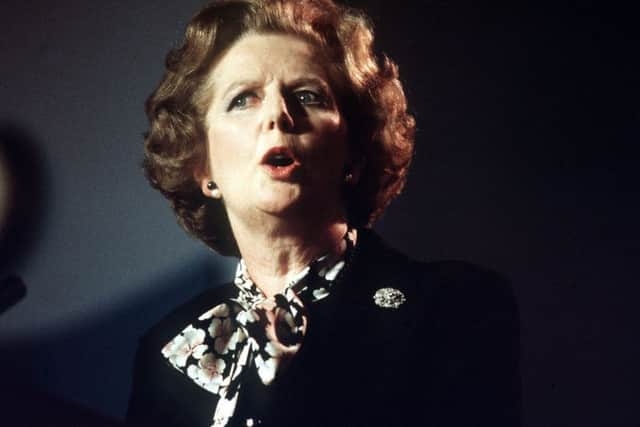

Advertisement
Hide AdAdvertisement
Hide AdBut, after being deposed in 1990, the politician made a single reference in her autobiography to being treated ‘like the cleaning lady’ by male cabinet members, and Jenni spied an opening.
“I thought ‘Ah, there we are’. I posed a question about that, and the fact people always used to say she gave them a handbagging - you’d never say a man had given them a briefcasing - and that Alan Clark had waxed lyrical about her finely-turned ankles and how much he’d fancied her during Prime Minister’s Questions.”
French President Francois Mitterrand’s description of Thatcher having ‘the eyes of Caligula and the lips of Marilyn Monroe’ added further grist to the mill.
“The radio reviewer of the Sunday Times said it was the only time his radio had ever frozen over. Nobody had silenced Margaret Thatcher before, she always had something to say, but on that occasion she simply said nothing.”
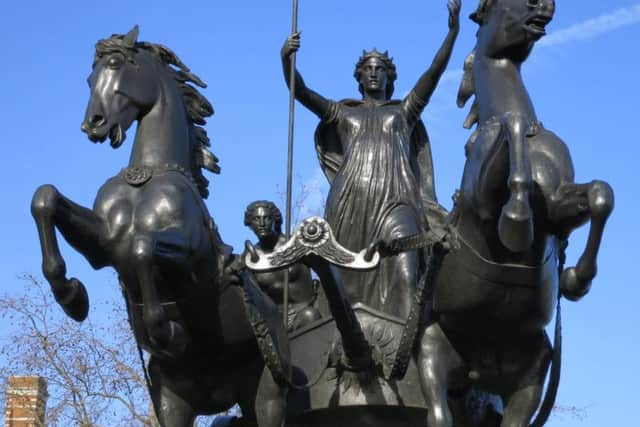

Advertisement
Hide AdAdvertisement
Hide AdJenni now realises, years later, that Mrs Thatcher was ‘hearing all that for the first time’. Bernard Ingham, her famously efficient press secretary, had kept her in the dark about any tales of lustful colleagues.
“I suspect he’d only given her cuttings of things he felt she needed to know.”
Jenni says her generation of feminists was ‘really divided’ on Britain’s first female PM, who seemed reluctant to recruit other women to senior positions. But in the end she decided to include the Iron Lady in her book A History of Britain in 21 Women, now published in paperback.
“The mere fact a woman had become Prime Minister was so exciting, we just were thrilled to bits.”
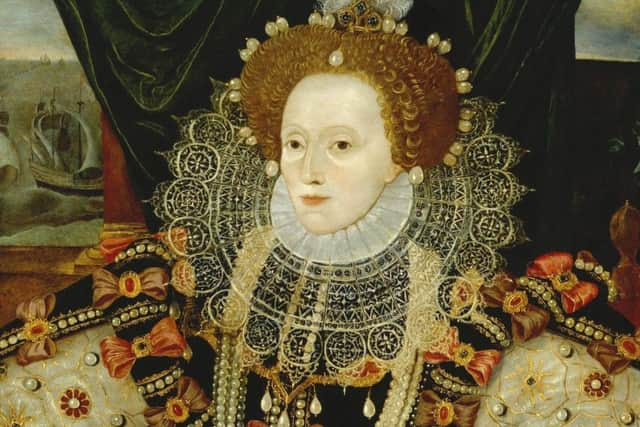

Advertisement
Hide AdAdvertisement
Hide AdThe book is a personal journey presenting the nation’s story through the lives of its great women - Queen Elizabeth I, miniskirt designer Mary Quant, author Jane Austen and suffragette Emmeline Pankhurst all make an appearance, with Scottish first minister Nicola Sturgeon the most recent name.
“It was so difficult to decide who was going to go in. But in the end I decided they just had to be my choices. I’m 67 now and not very long before I was born women finally won the vote. The idea that you had no right to take part in the democracy of your country was just extraordinary.”
Her introduction to the true nature of a woman’s potential came in the form of a statue of the Celtic warrior queen Boudicea - the first historic figure to be profiled in the book. Jenni dislikes calling her Boudicca, deeming it ‘such an ugly name’.
At the time Jenni had just passed her 11 plus, gaining a place at a grammar, Barnsley Girls’ High, and had been taken to London as a treat by her parents when she encountered the sculpture of Boudicea and her Daughters on the Embankment.
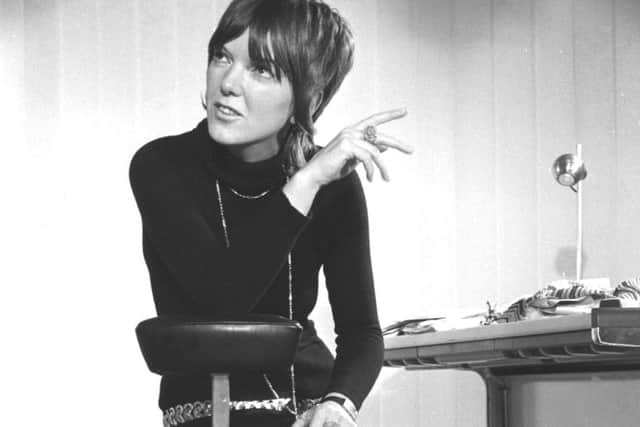

Advertisement
Hide AdAdvertisement
Hide Ad“That was really the first I’d heard of what she’d done. What’s really interesting is that she was the queen of the Iceni tribe, her husband died, she assumed she would inherit his position, land and money and the Romans said ‘No, you shall have nothing’.
“She was whipped and her two daughters were raped. And that seems to me rather a good reason for deciding to gather an Army together and fighting.”
If Boudicea had won, Britain’s sexual politics might have been very different, she thinks.
“Those tribes had equality between men and women.”
Jenni studied French and drama at Hull University, then joined BBC Radio Bristol in 1973. A stint on the local news bulletin South Today was followed by a spell hosting Newsnight in the early 1980s. Jenni moved to Radio 4 to present the Today programme, and took over from Sue MacGregor on Woman’s Hour in 1987.
Advertisement
Hide AdAdvertisement
Hide AdHer career path upended the expectations society had for women of Jenni’s mother Winifred’s era. She stayed at home while only child Jenni’s father, Alvin, travelled the world as an electrical engineer.


Reading the work of feminist writers such as Simone de Beauvoir and, later, Germaine Greer helped to form Jenni’s outlook.
“The whole thing started to become politicised. And I was right in the middle of it all.”
She had an ‘extremely tricky relationship’ with her mother, laid bare in the title of a previous book, Memoirs of a Not So Dutiful Daughter.
Advertisement
Hide AdAdvertisement
Hide Ad“If I put on a short skirt she’d say ‘Don’t think you’re going out in that thing.’ Even into my twenties and thirties, I would appear on Newsnight and she would phone up and say ‘Oh, sorry, were you talking to Norman Tebbit? I wasn’t really listening to what you were saying. But you know that red top you had on, it was a bit high-coloured for you. And you know your eyes are your best feature – I think your fringe has gone a bit long and you can’t really see them.’
“I know, on reflection, all she wanted was the best for me, but she could be intensely irritating when she did that kind of thing.”
As a teenager dressing up for Saturday nights out at folk clubs in Barnsley, Jenni used to change into a miniskirt and put on eye makeup in the bus station toilets, stashing her clothes at a friend’s house.
“I always managed to get round these things.”
Jenni is a forthright character. Her outspokenness has landed her in hot water - an article for the Sunday Times magazine in which she questioned the right of transgender women to be considered ‘real women’ drew criticism earlier this year - but her honesty has also been admirable.
Advertisement
Hide AdAdvertisement
Hide AdIn 2006 she bravely revealed her breast cancer diagnosis at the end of Woman’s Hour, underwent treatment and was back on air months later. In 2015 she freely admitted undergoing weight-loss surgery, arguing that people needed to stop moralising about such procedures.
Jenni visited her parents in Barnsley practically every weekend when they were alive - “I was their only help and support” - but since their deaths in 2005 and 2006 she has been back ‘hardly at all’.
Married for the second time, with two grown-up sons, Jenni splits her time between London and the Peak District but has fond memories of South Yorkshire.
“On a Saturday morning my mum would say ‘Shall we go to Sheffield or Leeds?’ More often we went to Sheffield. When you got off the train, the smell of the brewery was overwhelming. I used to love the old Playhouse theatre, I saw lots of really good plays there.”
Advertisement
Hide AdAdvertisement
Hide AdJenni is appearing at Off The Shelf this weekend and is ‘amazed’ at the number of literary festivals operating around the country.
“We went through that period where people would say ‘The book is dead, it’s all going to be online’ – that is so not true. People come in floods to these festivals, they’re buying and reading books, and that is brilliant.”
Anyone enthused by Jenni’s female-focused chronicle of Britain can expect a further book.
“I’m now in the throes of 21 Women of the World, which is a slightly wider canvas, obviously. That’ll be published next year.”
Advertisement
Hide AdAdvertisement
Hide AdJenni Murray is speaking at Sheffield University’s Firth Hall at 1pm on Sunday. Tickets £7-£10, visit www.offtheshelf.org.uk for details. A History of Britain in 21 Women is published by Oneworld in paperback, priced £9.99.
‘A new generation is happy to embrace feminism’
Jenni Murray has been presenting Woman’s Hour for 30 years solid and says ‘there’s nothing like it’.
“It’s the only programme where you get to do politics, books, theatre, music, cooking, crafts - the range is absolutely enormous. And that just doesn’t exist anywhere else.”
The BBC Radio 4 programme is stronger than ever, she says.
“When I started, calling myself a feminist was not entirely welcomed by an awful lot of people. A new generation is very happy to embrace that term, both young men and women.”
Advertisement
Hide AdAdvertisement
Hide AdWoman’s Hour predates Radio 4, and started on the Light Programme - now Radio 2 - in 1946, but Jenni says it has ‘changed and developed’.
“Even in the earliest days it was discussing equal pay, which we still don’t have, and women and their jobs - what kind of jobs women were interested in. So anyone who is sniffy about it probably doesn’t really listen.”
There would be an outcry if it was ever axed and replaced. A BBC decision to simply move the weekday programme from 2pm - ‘a perfect time’ - to 10.30am, then 10am, in the early 1990s angered some listeners.
“There was an absolute outcry. Questions were asked in the House of Commons which was pretty impressive, really.”